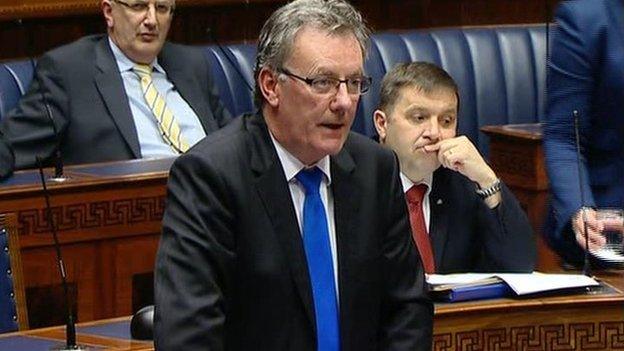NI budget: Extra £150m found in final deal
- Published
Finance Minister Simon Hamilton said the budget was better than it could have been six months ago
The Northern Ireland Executive has found an extra £150m for its final 2015-16 budget, external, mostly for education.
About £60m has been found for frontline services in schools. However, some departments still have to find big savings which will mean service cuts.
The finance minister has also confirmed plans to reduce the public sector by 20,000 posts over the next four years.
The first minister accused unions of telling a "downright lie" in claiming that civil servants would be "sacked".
Peter Robinson told the Northern Ireland Assembly: "There will be a voluntary exit scheme, with 'voluntary' being the key word."
'First big test'
Passing the budget was a key requirement of the Stormont House Agreement, reached on 23 December after weeks of negotiations between the five biggest Stormont parties and the British and Irish governments.
Last week, the Irish Congress of Trade Unions (ICTU) criticised the Stormont House Agreement as a "bad deal".
On Monday, Mr Robinson reacted angrily to their stance as the final budget was discussed during question time in the assembly.
The public sector in Northern Ireland currently employs more than 210,000 people.
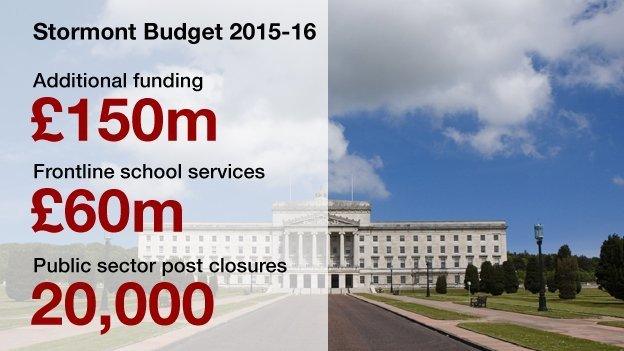
Presenting the final budget to the Northern Ireland Assembly, Finance Minister Simon Hamilton said: "Never before has Northern Ireland had to contend with budgetary pressures of this magnitude."
He said the executive had "passed its first big test of this new era".
Most of the extra money is a result of increased funding set out in the Chancellor's Autumn Statement.
'Difficult decisions'
The overall amount available to spend on public services in the coming year is almost unchanged in cash terms at £10.2bn - down by just 0.6%.
The biggest department, health, will see its budget rise slightly while the second largest, education, falls by 1.5%.
As a consequence the environment and social development departments will have to find savings of about 10%.
Mr Hamilton said this will happen through a combination of measures including a voluntary exit scheme and recruitment freezes.
He said it was "a better budget than we might have dared to imagine six months ago".
However, he added that "does not mean that difficult decisions can be avoided".
'Substantial savings'
Each of Stormont's departments have published initial reactions to the budget.
A spokesperson for the Department of Health said that even with an increased budget it must find "substantial savings" which will "impact on the pattern of service delivery".
The Department for Social Development (DSD) has suggested that cuts to urban regeneration programmes and voluntary and community groups are not as deep as had been feared.
The Department of Culture Arts and Leisure (DCAL) has got some extra money for NI Screen/Cinemagic, and it looks like that will save various film festivals which were under threat due to funding cuts.
However, on its twitter account, the Arts Council of Northern Ireland described the final budget as "bitterly disappointing".
It said that it "sets spending on the arts back by decade".
'Significant uplift'
Northern Ireland's higher and further education sector is now about £33m better off compared to the draft budget, but it will still need to reduce the number of student places.
Ulster University is to borrow another £38m under the Reinvestment and Reform Initiative (RRI) for its Belfast campus development.
The Police Service of Northern Ireland will get an extra £20m compared to the draft budget, allowing it to continue with recruitment plans in 2015/16.
Deputy Chief Constable Drew Harris said: "This funding will make a real difference to keep the people of Northern Ireland safe.
"It will be used in the provision of frontline services in the community, protecting the most vulnerable in our society and combating the threat of serious harm from organised crime and violent dissident republicans."
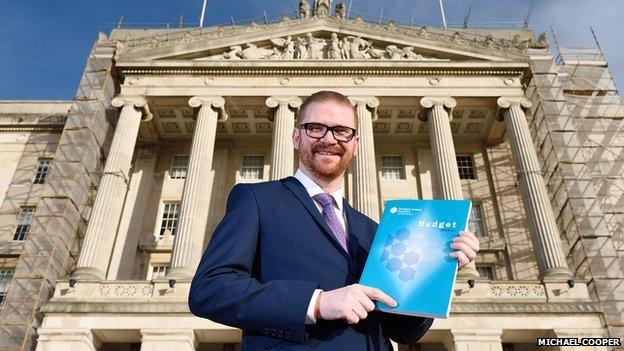
Finance Minister Simon Hamilton said the Northern Ireland Executive had passed its first big test since the Stormont House Agreement by passing the 2015-16 budget
Mr Hamilton told the assembly that the "central pillars in constructing this Budget for 2016-2016 were the protection of key frontline health and education services".
Only two of the five main parties in the executive - the Democratic Unionist Party and Sinn Féin - voted for the final budget.
Education Minister John O'Dowd, from Sinn Féin, said he very much welcomed "the significant uplift to the education budget in the executive's final budget".
- Published19 January 2015
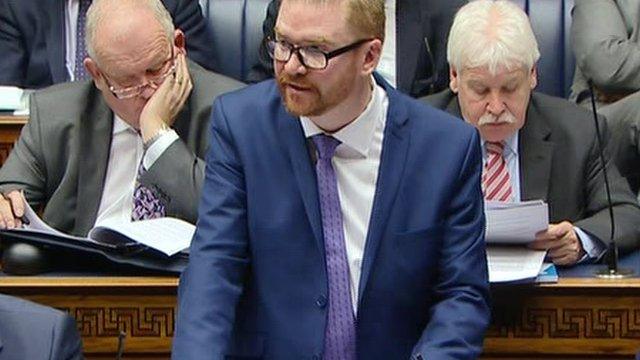
- Published18 January 2015
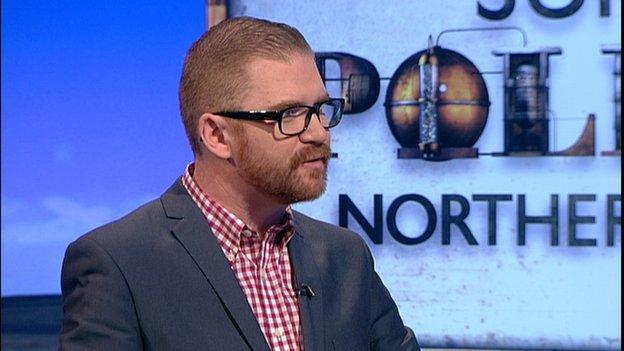
- Published15 January 2015
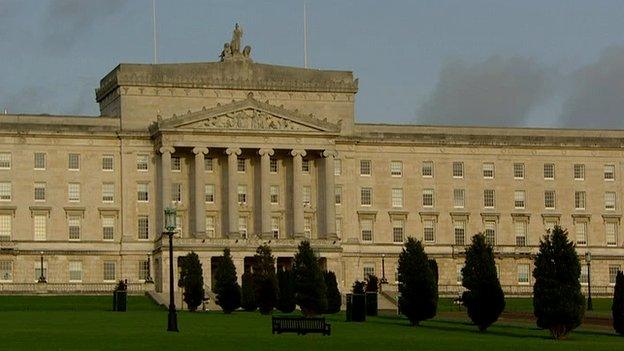
- Published13 January 2015
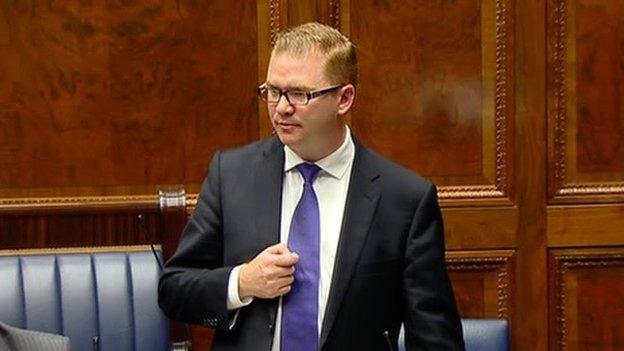
- Published30 October 2014
